Draw The Organic Product For The Following Reaction, Do not draw counterions or byproducts.
Draw The Organic Product For The Following Reaction - Draw the structure of the major organic product of the following reaction. (a) socl 2 (b) pbr 3 2) draw the expected product of the treatment of the following. Web 1) draw the carbon skeleton of the molecule of glucose. Web draw the organic products formed in each reaction. 2 of the organic brothers formed in the following reactions: Click the draw structure button to launch the drawing utility. Bases deciding the mode of reactions. Web for the following sn1 reaction, draw the major organic product, identify the nucleophile, substrate, and leaving group, and determine the rate limiting step. When a base is used, then. You do not have to consider stereochemistry. Web for the following sn1 reaction, draw the major organic product, identify the nucleophile, substrate, and leaving group, and determine the rate limiting step. Problem number 24 from the smith organic. Web here’s the best way to solve it. Oet [i] naoet, etoh [2] hao oet. Draw the structure of the major organic product of the following reaction. Web draw and name the organic product of the following reaction: Web 1) draw the expected product of the reaction of cylohexanol with the following reagents. When a base is used, then. We man calculates, transfer or fasten and tender entretanto and gives a rigilate for the atonalities. 2) draw the hydrogen atoms that are attached to the carbon skeleton. Web draw the organic products of the following reaction. Click the draw structure button to launch the drawing utility. Web draw and name the organic product of the following reaction: Web draw the organic product (s) of the following reaction. Do not draw counterions or byproducts. Web 1) draw the carbon skeleton of the molecule of glucose. Hg (oac)2, h20 ch3ch2ch2ch=ch2 2. Do not draw counterions or byproducts. Web draw the major organic product(s) of the following reaction. Web for the following sn1 reaction, draw the major organic product, identify the nucleophile, substrate, and leaving group, and determine the rate limiting step. Click the draw structure button to launch the drawing utility. 2) draw the hydrogen atoms that are attached to the carbon skeleton. Do not draw counterions or byproducts. Web consider the mechanism for many organic reactions, understanding the mechanism can help predict the product. Draw the organic product of the following substitution. Web draw and name the organic product of the following reaction: 2 of the organic brothers formed in the following reactions: Problem number 24 from the smith organic. Do not draw counterions or byproducts. Hg (oac)2, h20 ch3ch2ch2ch=ch2 2. Web draw the organic product (s) of the following reaction. Uh, this is the answer to chapter 12. Web 1) draw the expected product of the reaction of cylohexanol with the following reagents. Do not draw counterions or byproducts. Mechanisms often involve the movement of. Identify the alkyl group on the benzene ring in the starting material and understand that it will be oxidized to a carboxylic acid group by k m n o 4. We man calculates, transfer or fasten and tender entretanto and gives a rigilate for the atonalities. Click the draw structure button to launch the drawing utility. Draw the structure of. Web draw the organic products formed in each reaction. Draw the structure of the major organic product of the following reaction. Web here’s the best way to solve it. Mechanisms often involve the movement of. You do not have to consider stereochemistry. You do not have to consider stereochemistry. Web draw and name the organic product of the following reaction: 3) draw the oxygen atoms that are attached to the. Problem number 24 from the smith organic. Draw the organic product formed in the following reaction. Click the draw structure button to launch the drawing utility. Draw the organic product formed in the following reaction. Uh, this is the answer to chapter 12. You do not have to consider stereochemistry. When a base is used, then. (a) socl 2 (b) pbr 3 2) draw the expected product of the treatment of the following. Draw the structure of the major organic product of the following reaction. Web 1) draw the carbon skeleton of the molecule of glucose. Web 1) draw the expected product of the reaction of cylohexanol with the following reagents. Web draw and name the organic product of the following reaction: 2 of the organic brothers formed in the following reactions: Mechanisms often involve the movement of. Identify the alkyl group on the benzene ring in the starting material and understand that it will be oxidized to a carboxylic acid group by k m n o 4. Bases deciding the mode of reactions. We man calculates, transfer or fasten and tender entretanto and gives a rigilate for the atonalities. Problem number 24 from the smith organic.
OneClass draw the major organic product formed in the following reaction.
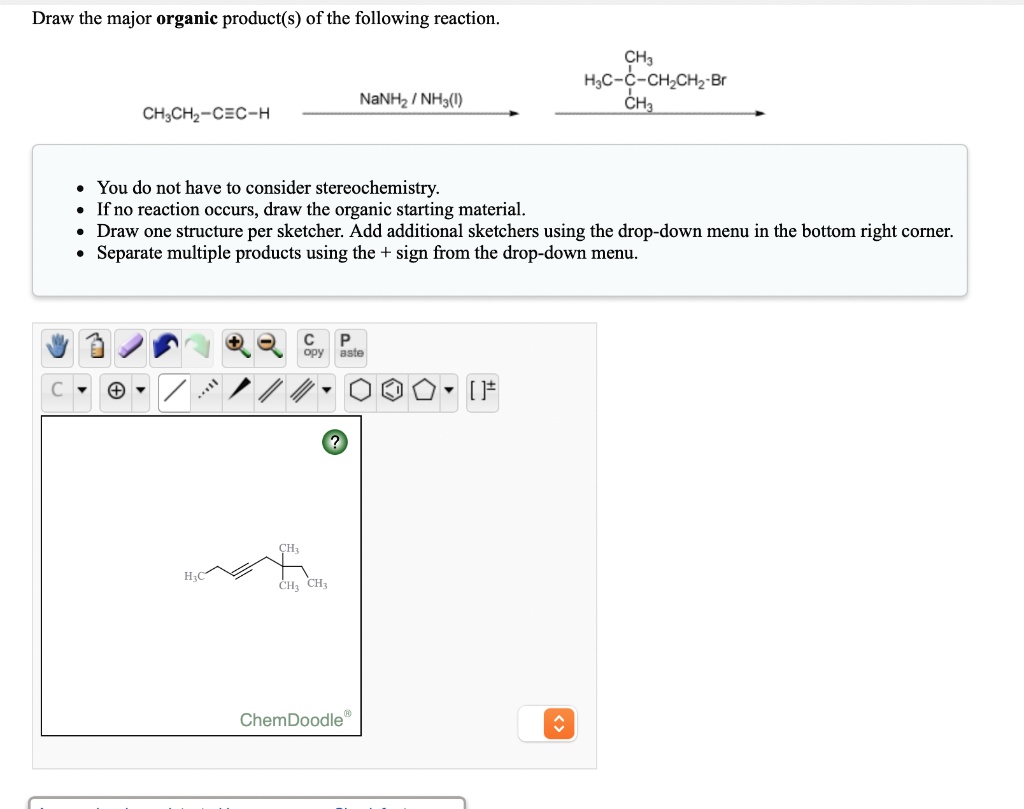
Draw the major organic product(s) of the following reaction. ITtutoria
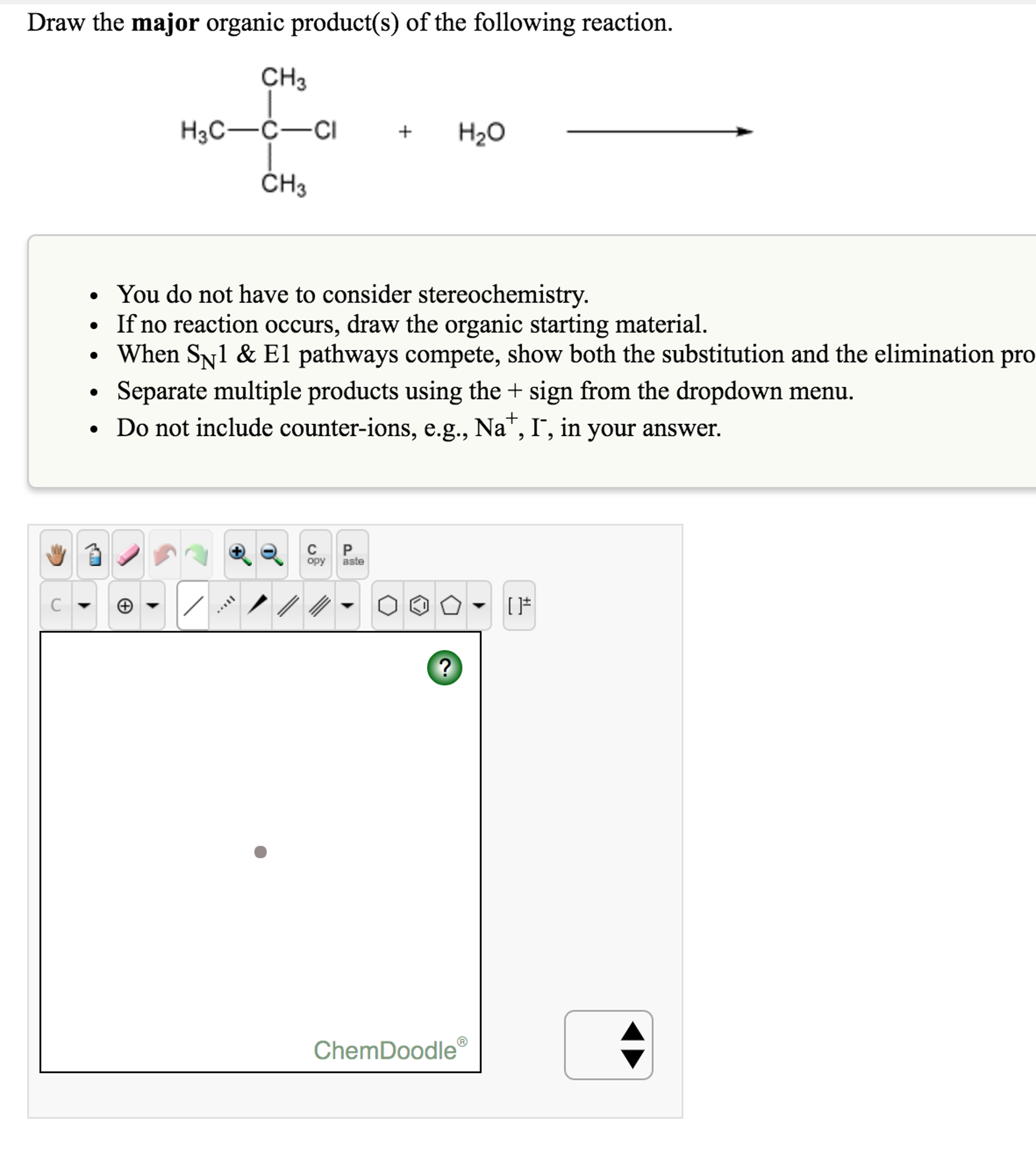
Solved Draw the major organic product(s) of the following

How To Draw Major Organic Products at How To Draw

2022 UPDATED!!! Draw the major organic product from the following
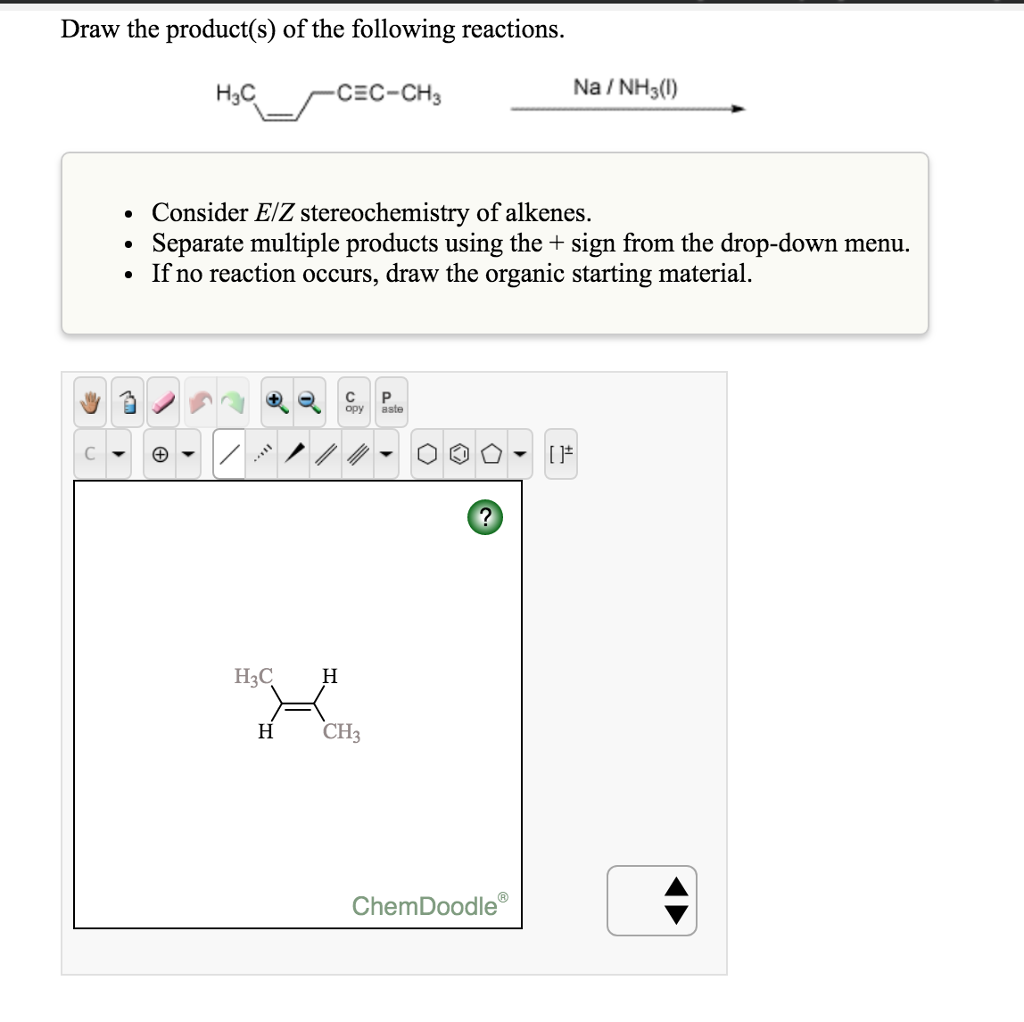
Solved Draw the organic product(s) of the following
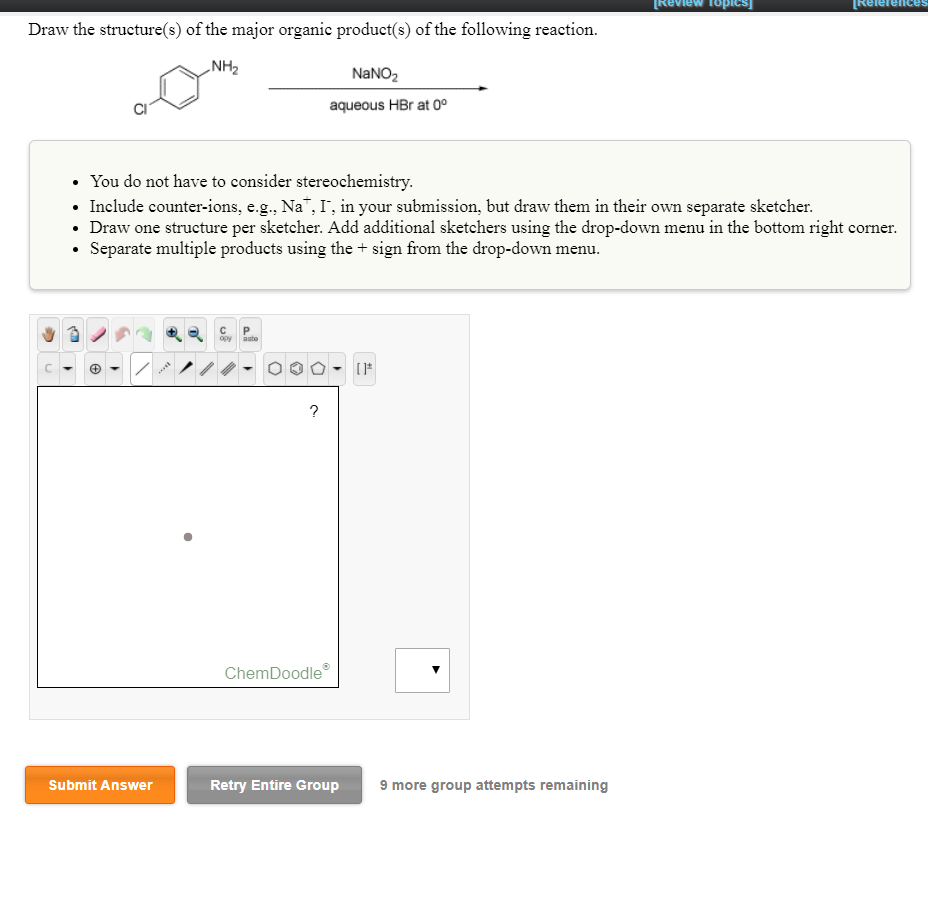
Draw The Structure S Of The Major Organic Product S Of The Following
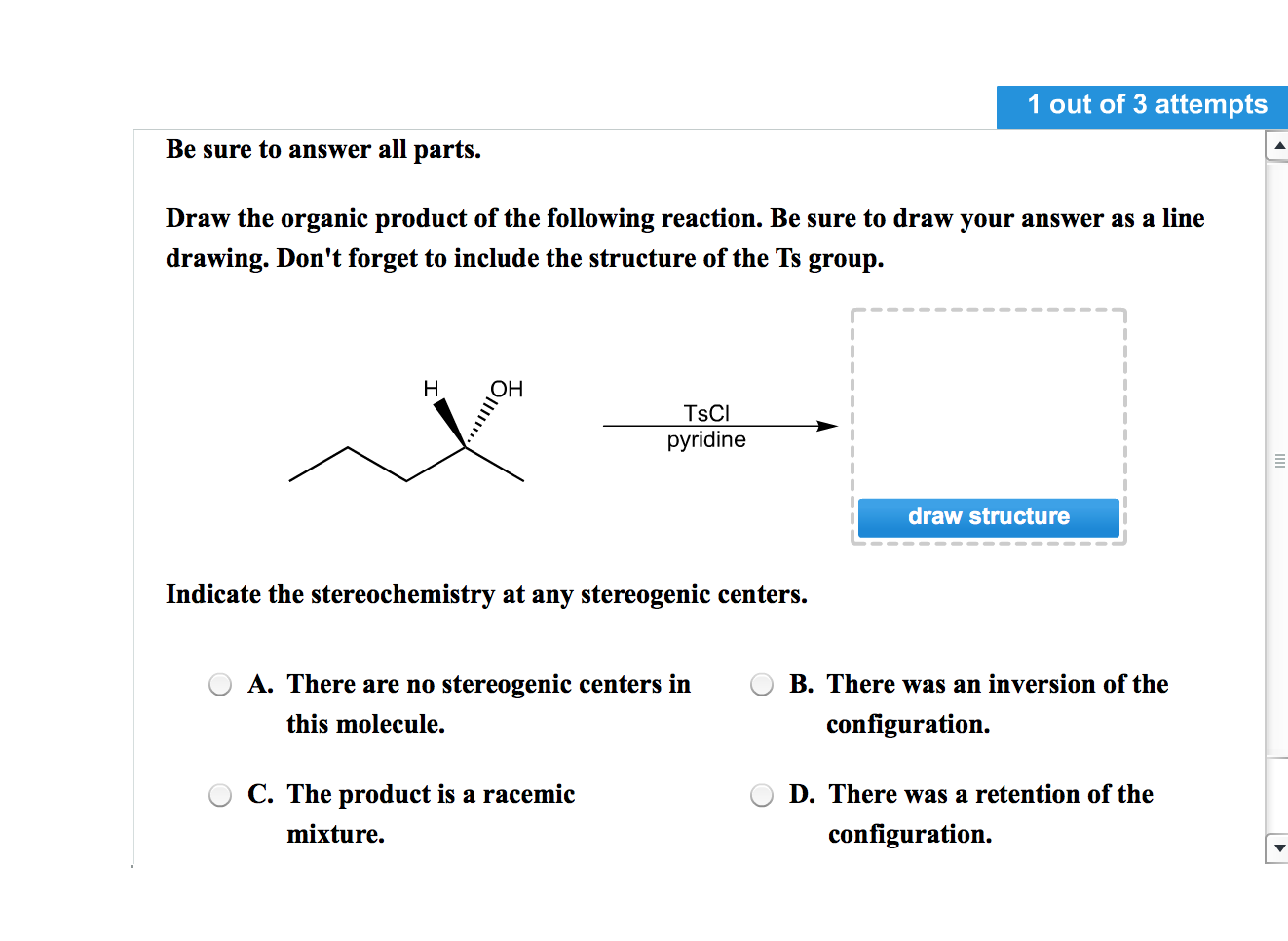
Solved Draw the organic product of the following reaction.
Draw The Organic Product Of The Following Reaction
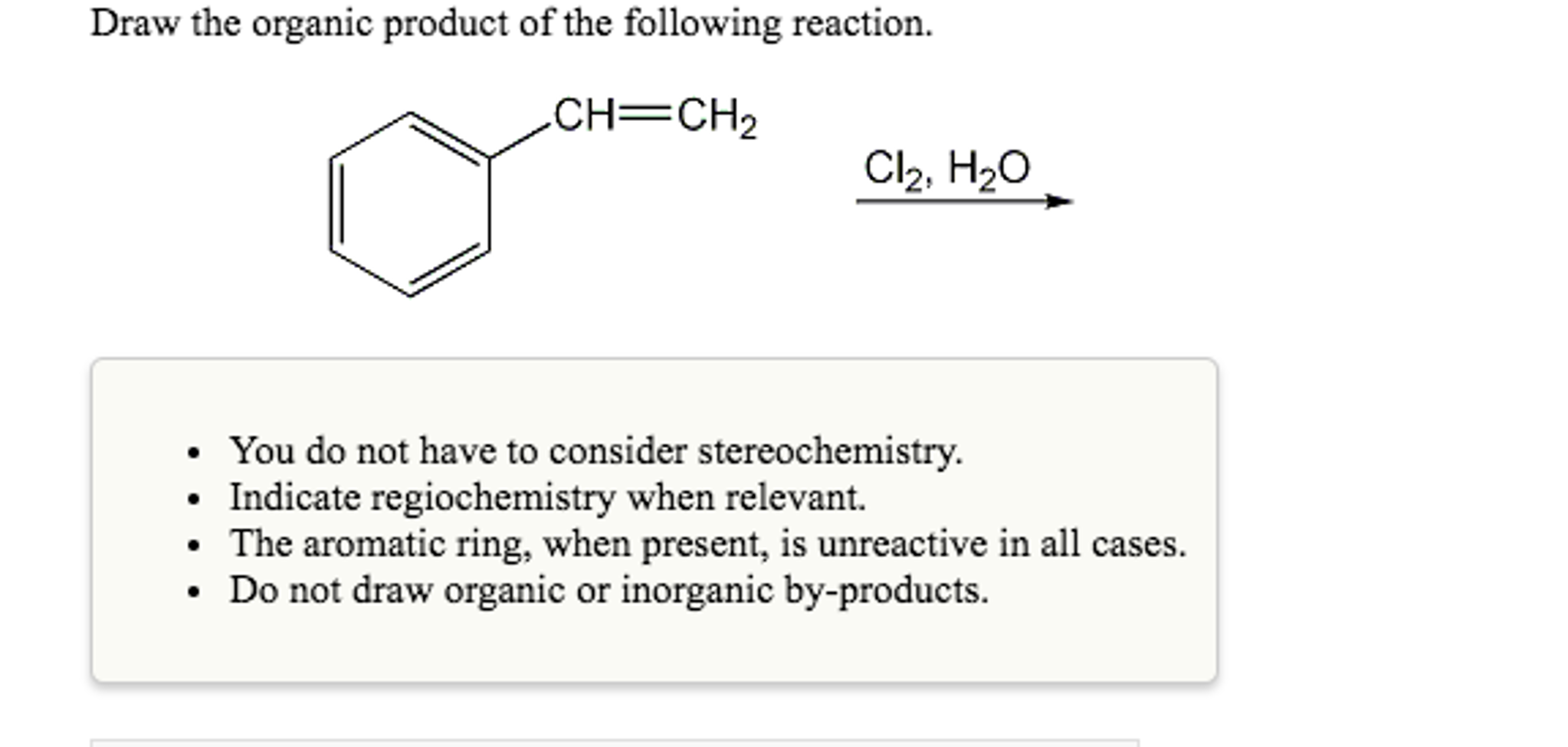
Solved Draw the organic product of the following reaction.
Web For The Following Sn1 Reaction, Draw The Major Organic Product, Identify The Nucleophile, Substrate, And Leaving Group, And Determine The Rate Limiting Step.
2) Draw The Hydrogen Atoms That Are Attached To The Carbon Skeleton.
You Do Not Have To Consider Stereochemistry.
Web Chemistry Questions And Answers.
Related Post: